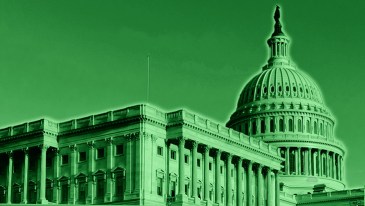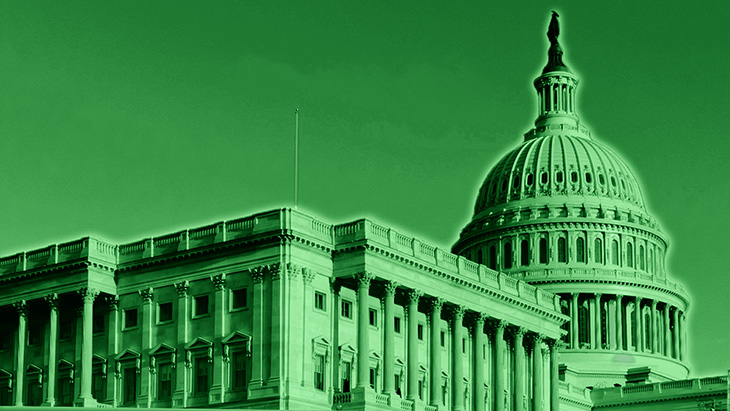
Members of the 117th Congress are unlikely to advance the Secure and Fair Enforcement (SAFE) Banking Act or other marijuana-related reform language before the session’s end.
Congressional leaders are set to debate an omnibus spending package in the session’s final days and that package does not include provisions specific to either SAFE, the HOPE Act, or language providing explicit legal protections to adult-use legal states. Separate provisions to permit the District of Columbia to regulate the adult-use cannabis market absent Congressional interference are also absent from the bill.
“Democrats have promised action on cannabis consistently for the last two years, yet leadership consistently failed to prioritize and advance marijuana reform legislation, including legislation to provide clarity to banks and to provide grant funding for state-level expungements efforts, despite having several opportunities to do so. Democrats’ failure and the GOP’s continued resistance to any progress is out of step with voters’ opinion, is bad politics, and most importantly, it is bad public policy,” NORML’s Erik Altieri said.
He added: “Until Congressional action is taken, state-licensed marijuana businesses, the hundreds of thousands of people they employ, and the millions of Americans that patronize them will continue to be at a higher risk of robbery due to the cash-heavy nature of this industry created by outdated federal laws. Furthermore, smaller entrepreneurs who seek to enter this industry will continue to struggle to compete against larger, more well-capitalized interests.”
Federal law discourages banks and other financial institutions from maintaining relationships with marijuana-related businesses because the plant remains classified as a Schedule I controlled substance. According to data provided by the US Treasury Department earlier this year, only about 11 percent of all US banks and about 4 percent of all US credit unions are “actively providing banking services to marijuana-related businesses.” Survey data compiled in February by Whitney Economics reported that over 70 percent of participating cannabis businesses say that the “lack of access to banking or investment capital” is their top challenge.
An analysis published earlier this year reported that the state-licensed cannabis industry employs over 428,000 full-time workers.
On seven separate occasions, House members advanced SAFE Banking language to the Senate. However, members of the Upper Chamber never considered the language. Senators also failed to hold any hearings on the Senate-version of the bill, which had 42 co-sponsors, including nine Republicans.
National polling data provided in November by the progressive-leaning think tank Data for Progress reported that 72 percent of likely voters supported permitting state-licensed cannabis businesses “lawful access to US financial systems.” Seventy-four percent supported the expungement of marijuana-related convictions.
“Voters are consistent in their support for these common-sense federal reforms,” NORML’s Deputy Director Paul Armentano said. “Majorities of Democrats, Independents, and Republicans back these changes and it is nothing short of political negligence that federal lawmakers haven’t worked in a bipartisan manner to successfully achieve them.”
In recent weeks, Senate leaders had discussed amending the bill to include additional provisions, such as language providing for funding to facilitate state-level expungement efforts. However, no amended version of the legislation was ever reintroduced.
Prior to the 2020 election, Sen. Chuck Schumer pledged that he would prioritize advancing marijuana legalization legislation if he became Senate Speaker. “If I become majority leader, I put this [repealing federal marijuana prohibition] on the floor and it’s likely to pass,” he said. “If you believe in decriminalizing cannabis, the thing to do is vote for your Democratic Senate candidate because they’ll be part of my team to get this done.”
Related
Medical Disclaimer:
The information provided in these blog posts is intended for general informational and educational purposes only. It is not a substitute for professional medical advice, diagnosis, or treatment. Always seek the advice of your physician or other qualified healthcare provider with any questions you may have regarding a medical condition. The use of any information provided in these blog posts is solely at your own risk. The authors and the website do not recommend or endorse any specific products, treatments, or procedures mentioned. Reliance on any information in these blog posts is solely at your own discretion.






